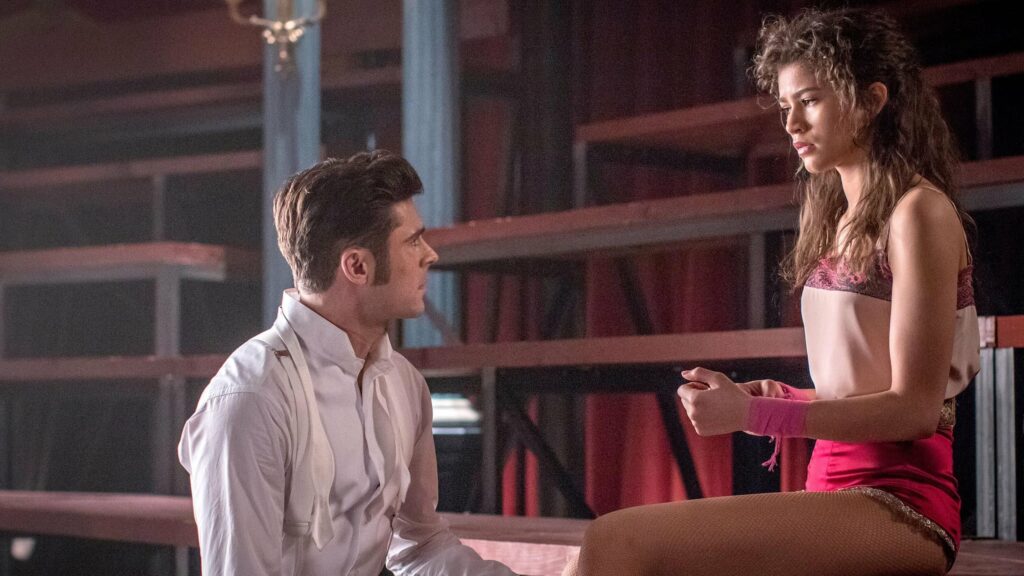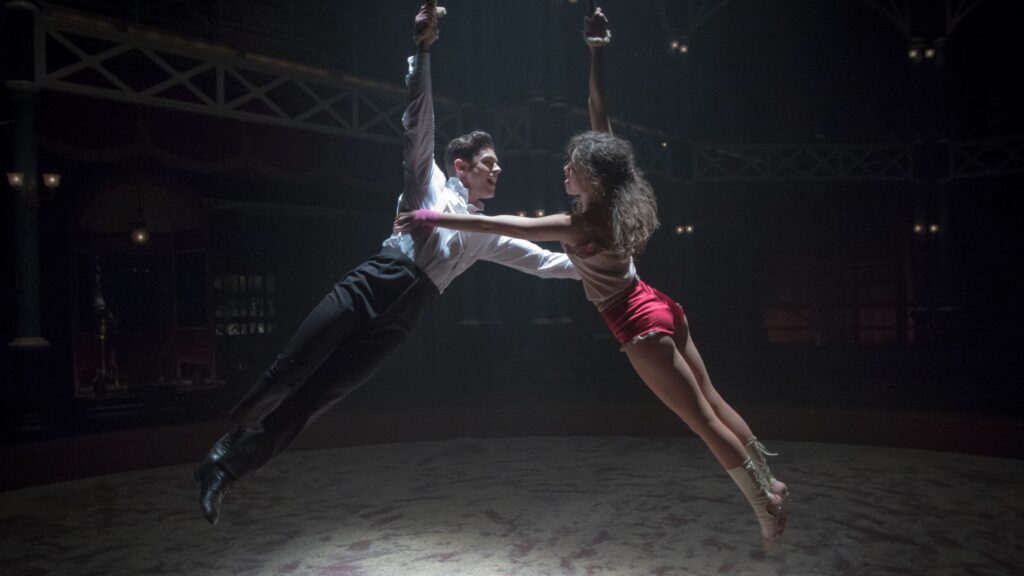Can we rewrite the stars?
In his review of The Greatest Showman, Hunter from Kinemalogue suggests that it would have worked a lot better if it had been about “C.T. Farnum,” a Charles Foster Kane-esque stand-in for the film’s actual subject. I agree. This would have solved two problems for The Greatest Showman: First, it would have freed the film from the shackles of biographical truth. The film could be sillier, freer from history and the metric of historical accuracy by which some of us measure biopics. The film has ignored a lot of documented history and invented plenty of its own anyways, though this is by itself not really a problem for me. I tend to assume biopics are hokum regardless, and most of my favorites are brazenly non-factual (e.g. The Social Network, Amadeus, Ed Wood).
Second and relatedly, severing the tie with the real P.T. Barnum would have allowed us to enjoy the film without reckoning with the moral failings of Barnum and his enterprise. Barnum was an innovative and ambitious entertainer, but a relentless exploiter in real life, and it feels icky to cheer on his Hugh Jackman avatar. If this was instead C.T. Farnum’s story, it could confront its premise in the abstract, with no baggage of a real person who did real things. Its ideas, about how artifice and spectacle help us express that which makes us exceptional (and differently-abled) in ways that high art never could, would not suffer from detailed takedowns of Barnum’s up-and-down life history.

Too bad. As it is in its real-Barnum biopic form, Greatest Showman is a knock-off Hamilton that has the same approximate idea — reclaiming a complicated historical figure with fresh eyes to provide an optimistic lens on modern identity politics — but without any of the bracing innovation or generational zeitgeist. It lacks the distinct voice of an auteur like Lin Manuel Miranda, and never tries to be as conceptually or lyrically dense as the Broadway smash. (And even Hamilton — much as I loved seeing it on Broadway and cherish the memory of “Dear Theodosia” making me cry so hard during my first commute back to work after my paternity leave that I had to pull over — has not had enduring intellectual legs as more and more people apply critical thinking regarding the Founding Fathers’ relationship with race… But that’s a discussion for a different review.)
So: How much are you willing to swallow bad history and dubious ethical revisionism in the name of some terrifically-staged musical numbers? How much are you willing to wave away a janky story, wonky characterization, and half-baked themes in order to enjoy an honest-to-God movie musical, one designed from the ground up to be such?

I do not blame you if the answer is that you are not willing to. I suggest you go read this review written by Gargus that makes a very good case for scrapping the whole thing, even if means throwing some nifty choreography and production out with the bathwater. This is a wholly justifiable reaction to The Greatest Showman.
The truth is that the problems with the script go deeper than Barnum himself. Its pacing is all over the map, sometimes dragging out sequences beyond their purpose (e.g. the endless “A Million Dreams” montage), and just as often racing through ten plot points in a single scene. Consider the moment when Barnum’s first workplace goes under — we learn, in one swoop, that Barnum is now unemployed, that he’s stolen the deeds to some sunken ships, that he has a hunger for novelty and innovation with the flying machines he was pitching, and that he has entrepreneurial gumption to pursue his own ideas. It’s a cramp-inducing two minutes. It’s not economical storytelling, it’s hitting a bunch of items on a checklist. There’s plenty more writing in the film that you can bag on, and The Greatest Showman practically begs you to do so with one contrivance and diversion after another. Hell, besides the opening and closing number, it doesn’t even show you much of the circus act itself!

But despite everything I’ve just written, I’m actually here to provide a positive review of the film. Yes, in spite of all of that prelude, I actually do find watching it to be a net positive experience.
This is a deeply enjoyable film musical. The tunes, whose music and lyrics were written by the songwriting duo Pasek and Paul, are energetic and fun. Even the ballads! There’s not a ton of variety across the numbers, with a few repeated production and composition flavors shuffled around into 9 songs and 3 reprises. But just like Taco Bell manages to make a large and satisfying menu with just a few ingredients, so Pasek and Paul cobble together a soundtrack with scope and breadth.
But it’s more than just the music — it’s the infectious sense of creation. It’s exciting to watch a musical that’s enthusiastic about its genre and the possibilities therein. It’s not just a misguided stage transplant (e.g. Pasek and Paul’s Dear Evan Hansen), nor a hide-the-receipts, trick-the-audience musical like Wonka. Barring the occasional La La Land, original live-action musicals have mostly been relegated to the tween movie universe — and thus it’s little surprise I’ve watched the Zombies, Teen Beach, and High School Musical movies about 15 times each.

Some of the staging (by debut director Michael Gracey) and choreography in this film is outright thrilling, and even the worst of it is still solidly compelling. So much of it is designed using the full three-dimensionality and time-and-space editing of cinema rather than the static proscenium of stage musicals.
Several are great, but the best number is “The Other Side,” an outright masterpiece. It features Barnum (Hugh Jackman) and Phillip Carlyle (Zac Efron) negotiating a contract over drinks. The choreography makes terrific use of the barroom set and props, and it has an energy that pops more every time I watch.
(The Carlyle character, by the way, is a total fabrication, although aspects of his character match James Anthony Bailey of “Barnum and Bailey.” I always love seeing Efron on screen, though I wish he had more to do. His main arc in this film is whether he’ll be brave enough to fall in love with Zendaya despite his racist parents frowning at him.)

Some of the other highlights include: “Rewrite the Stars,” a trapeze romantic ballad between Efron and Zendaya; “This is Me,” the stomp-and-cheer empowerment anthem; and the opener-closer “The Greatest Show” which uses an emo-pop-inspired shout-whisper texture.
“Never Enough” is a solid tune well-sung by Loren Allred (the one lip-synced song, perhaps telegraphing Rebecca Ferguson’s character is not to be trusted) but the most boringly-staged song in the film. Other songs — “From Now On,” “Tight Rope,” and “Come Alive” — are more same-ish, but generally pleasing and fun to watch.
It’s in my nature to forgive most sins of a musical that makes me sit up and notice how much fun it’s having. That’s exactly how I feel about The Greatest Showman, big hairy warts and all.
Is It Good?
Good (5/8)
Note: This is the podcast episode recorded after I first watched Greatest Showman, and my thoughts on it have changed some, though not my rating
Dan is the founder and head critic of The Goods. Follow Dan on Letterboxd. Join the Discord for updates and discussion.

